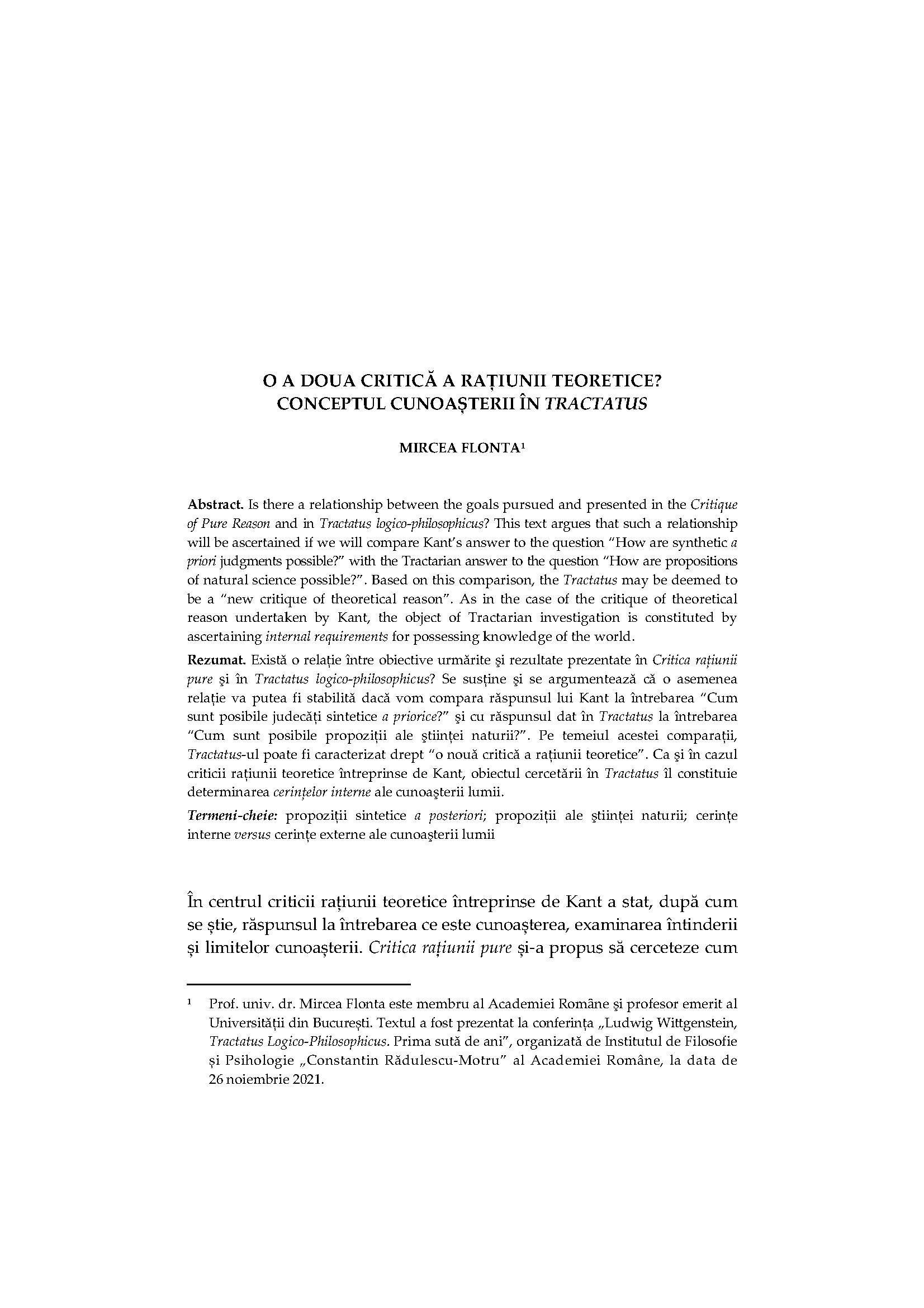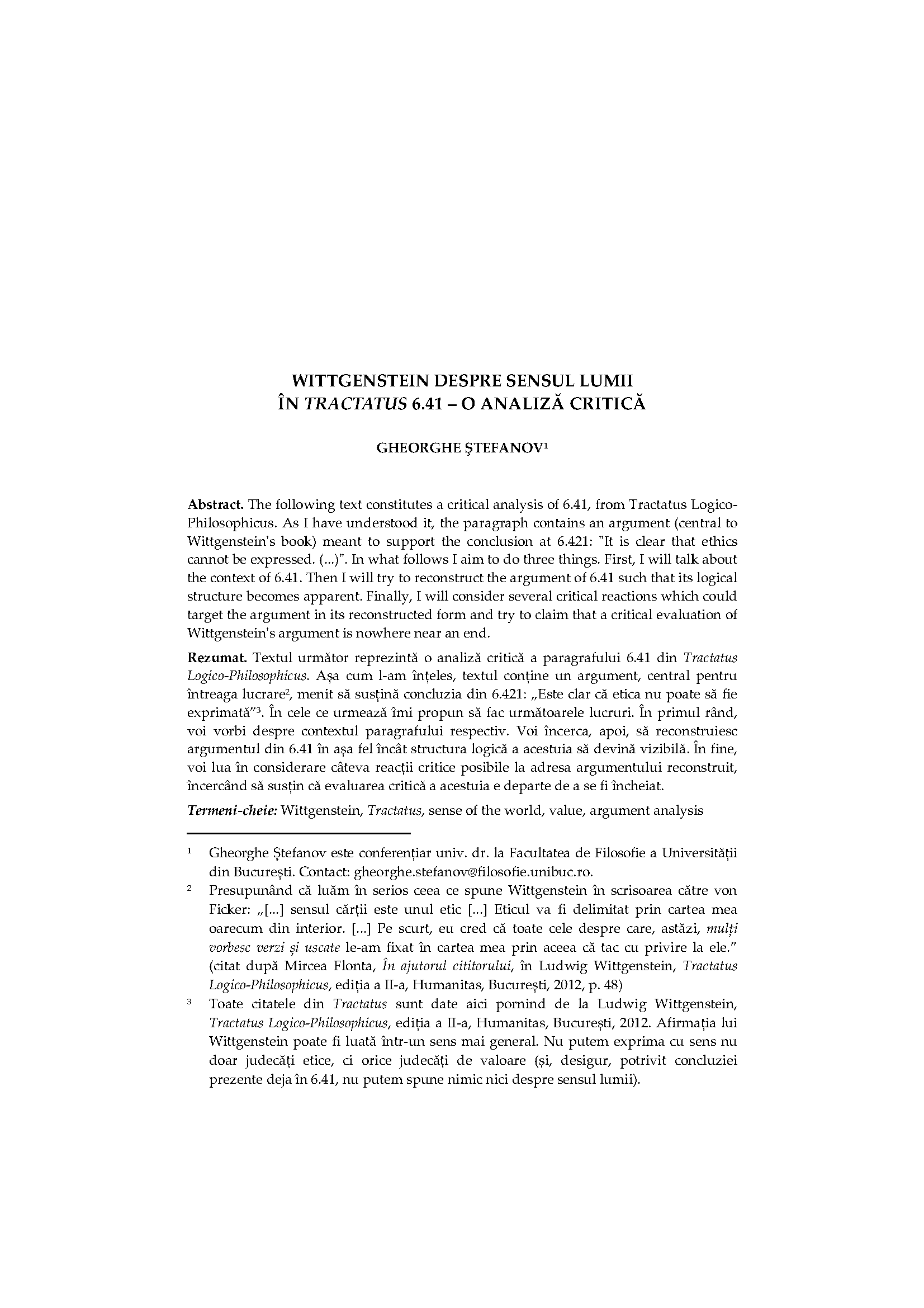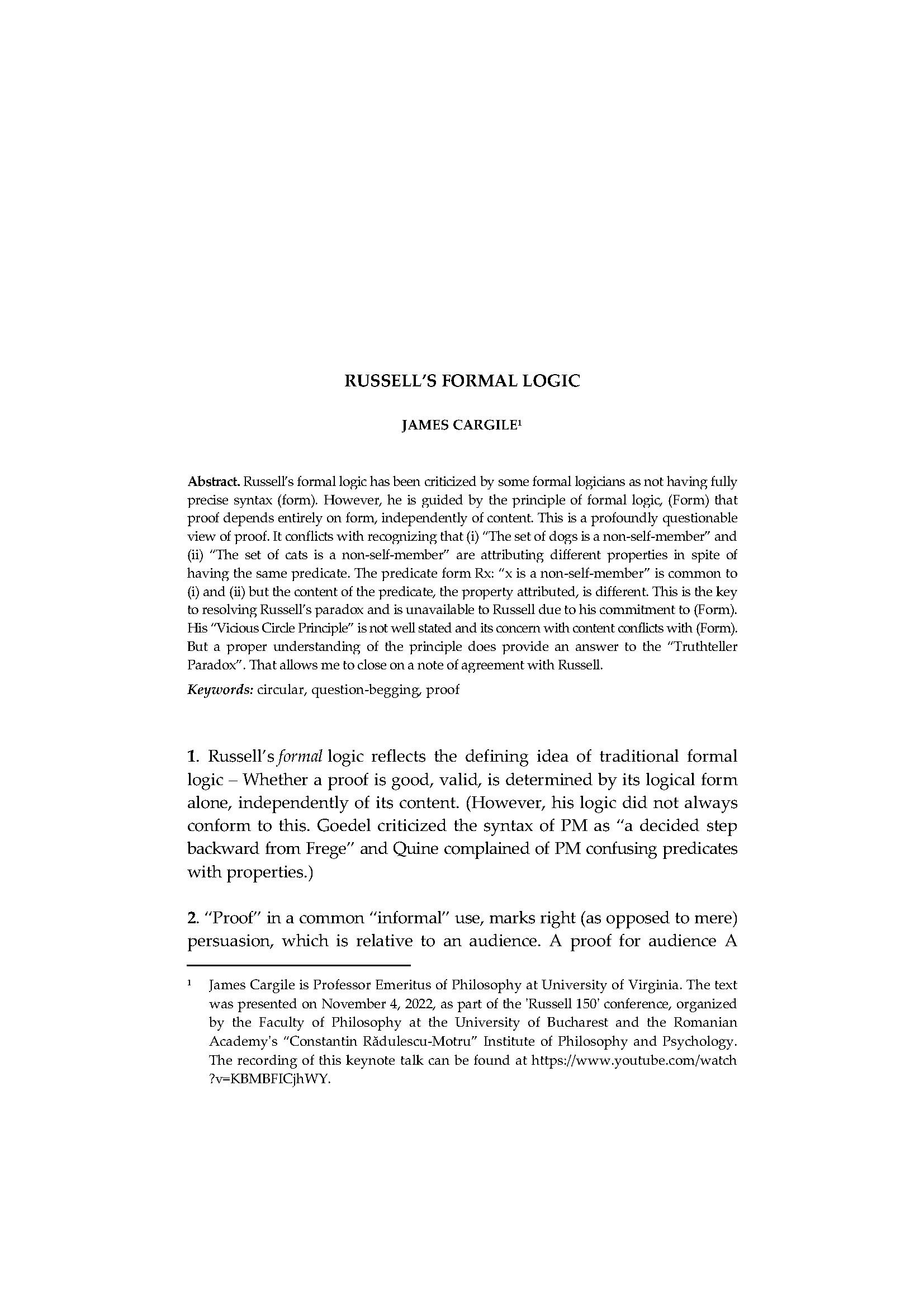Vol. 14 No. 1 (2020): Revista Română de Filosofie Analitică, Volumul XIV, Nr.1/2020

The articles in Romanian gathered in this issue that were authored by professors Flonta and Ştefanov were delivered as talks at the “Ludwig Wittgenstein, Tractatus Logico-Philosophicus. Prima sută de ani” conference, organized by the Romanian Academy's “Constantin Rădulescu-Motru” Institute of Philosophy and Psychology, and which took place on November 26th, 2021.
The article in English in this issue that was authored by professor Cargile was delivered as a talk in the “Russell 150” online conference, organized jointly by the Faculty of Philosophy at the University of
Bucharest (through its Department for Theoretical Philosophy and the Center for Logic, Philosophy and History of Science) and the Romanian Academy's “Constantin Rădulescu-Motru” Institute of Philosophy and Psychology. The event occurred on November 4th-5th, 2022.
We are grateful to our contributors for agreeing to publish their contributions in this journal’s first issue of 2020.
Full Issue
Articles
-
O A DOUA CRITICĂ A RAȚIUNII TEORETICE? CONCEPTUL CUNOAȘTERII ÎN TRACTATUS
Abstract
Is there a relationship between the goals pursued and presented in the Critique of Pure Reason and in Tractatus logico-philosophicus? This text argues that such a relationship will be ascertained if we will compare Kant’s answer to the question “How are synthetic a priori judgments possible?” with the Tractarian answer to the question “How are propositions of natural science possible?”. Based on this comparison, the Tractatus may be deemed to be a “new critique of theoretical reason”. As in the case of the critique of theoretical reason undertaken by Kant, the object of Tractarian investigation is constituted by ascertaining internal requirements for possessing knowledge of the world.
-
WITTGENSTEIN DESPRE SENSUL LUMII ÎN TRACTATUS 6.41 – O ANALIZĂ CRITICĂ
Abstract
The following text constitutes a critical analysis of 6.41, from Tractatus Logico-Philosophicus. As I have understood it, the paragraph contains an argument (central to Wittgenstein's book) meant to support the conclusion at 6.421: "It is clear that ethics cannot be expressed. (...)". In what follows I aim to do three things. First, I will talk about the context of 6.41. Then I will try to reconstruct the argument of 6.41 such that its logical structure becomes apparent. Finally, I will consider several critical reactions which could target the argument in its reconstructed form and try to claim that a critical evaluation of Wittgenstein's argument is nowhere near an end.
-
RUSSELL’S FORMAL LOGIC
Abstract
Russell’s formal logic has been criticized by some formal logicians as not having fully precise syntax (form). However, he is guided by the principle of formal logic, (Form) that proof depends entirely on form, independently of content. This is a profoundly questionable view of proof. It conflicts with recognizing that (i) “The set of dogs is a non-self-member” and (ii) “The set of cats is a non-self-member” are attributing different properties in spite of having the same predicate. The predicate form Rx: “x is a non-self-member” is common to (i) and (ii) but the content of the predicate, the property attributed, is different. This is the key to resolving Russell’s paradox and is unavailable to Russell due to his commitment to (Form). His “Vicious Circle Principle” is not well stated and its concern with content conflicts with (Form). But a proper understanding of the principle does provide an answer to the “Truthteller Paradox”. That allows me to close on a note of agreement with Russell.






